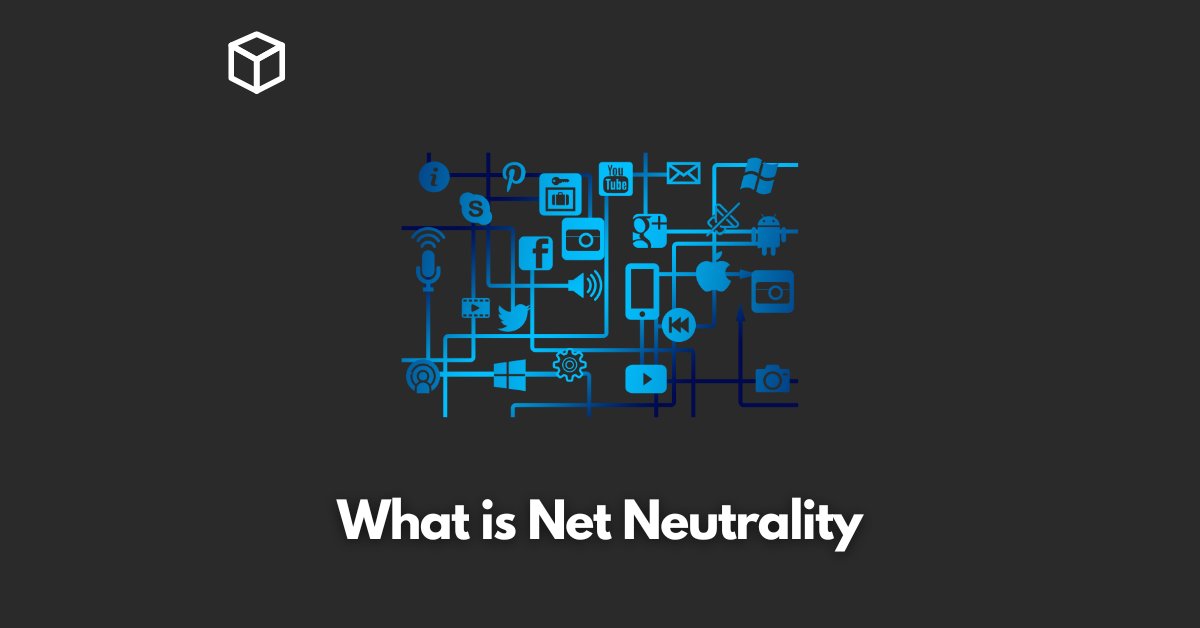Net Neutrality is a hot topic in the tech industry and has been for quite some time.
At its core, Net Neutrality is the principle that all internet traffic should be treated equally, without discrimination or preference.
This means that internet service providers (ISPs) should not be able to block, slow down, or charge more for certain websites or services.
Net Neutrality has been a part of discussions in the tech industry for over a decade.
It first came to prominence in the early 2000s, when some ISPs began blocking or slowing down certain types of traffic, such as peer-to-peer file sharing.
This sparked a debate about the role of ISPs in managing internet traffic, and whether they should be able to discriminate against certain types of traffic.
How Net Neutrality works
ISPs manage internet traffic by using a technique called “traffic shaping”.
This involves identifying certain types of traffic, such as streaming video or peer-to-peer file sharing, and either slowing them down or giving them priority over other types of traffic.
Net Neutrality ensures that ISPs do not discriminate against certain types of traffic, and that all internet traffic is treated equally.
Importance of Net Neutrality
Net Neutrality is important for a number of reasons. For one, it helps to protect freedom of speech and expression.
Without Net Neutrality, ISPs could potentially block or slow down certain websites or services, which would limit people’s ability to access information and express themselves online.
Additionally, Net Neutrality helps to support small businesses and innovation.
By ensuring that all internet traffic is treated equally, it ensures that new and emerging companies have a level playing field to compete on.
Without Net Neutrality, larger companies could potentially use their financial power to pay ISPs for faster or preferential treatment, which would make it harder for smaller companies to compete.
The potential consequences of a lack of Net Neutrality are severe, such as increased censorship and higher costs for consumers.
Without Net Neutrality, ISPs could potentially charge more for access to certain websites or services, or charge more for faster access.
This could make the internet less accessible for many people, and could lead to a “two-tiered” internet where only those who can afford to pay more have access to the best online services.
Additionally, ISPs could potentially censor certain types of content, which would limit people’s ability to access information and express themselves online.
Current state of Net Neutrality
Net Neutrality has been a topic of much debate in the United States.
In 2015, the Federal Communications Commission (FCC) passed rules to ensure that ISPs would not be able to block or slow down certain types of traffic.
However, in 2017, the FCC repealed those rules, which led to a loss of Net Neutrality protection.
The issue is still being discussed by the congress and FCC, but as of now the rules are not in effect.
Conclusion
Net Neutrality is an important principle that ensures that all internet traffic is treated equally, and that ISPs are not able to discriminate against certain types of traffic.
It is important for protecting freedom of speech and expression, supporting small businesses and innovation, and ensuring that the internet remains accessible to all.
If you are concerned about the current state of Net Neutrality, it is important to stay informed and to advocate for the protection of this principle.
You can do this by contacting your representatives in congress and encouraging them to support Net Neutrality.
It is also important to support organizations that are working to protect Net Neutrality, such as the Electronic Frontier Foundation.
By staying informed and taking action, we can help to ensure that the internet remains a level playing field for all.




